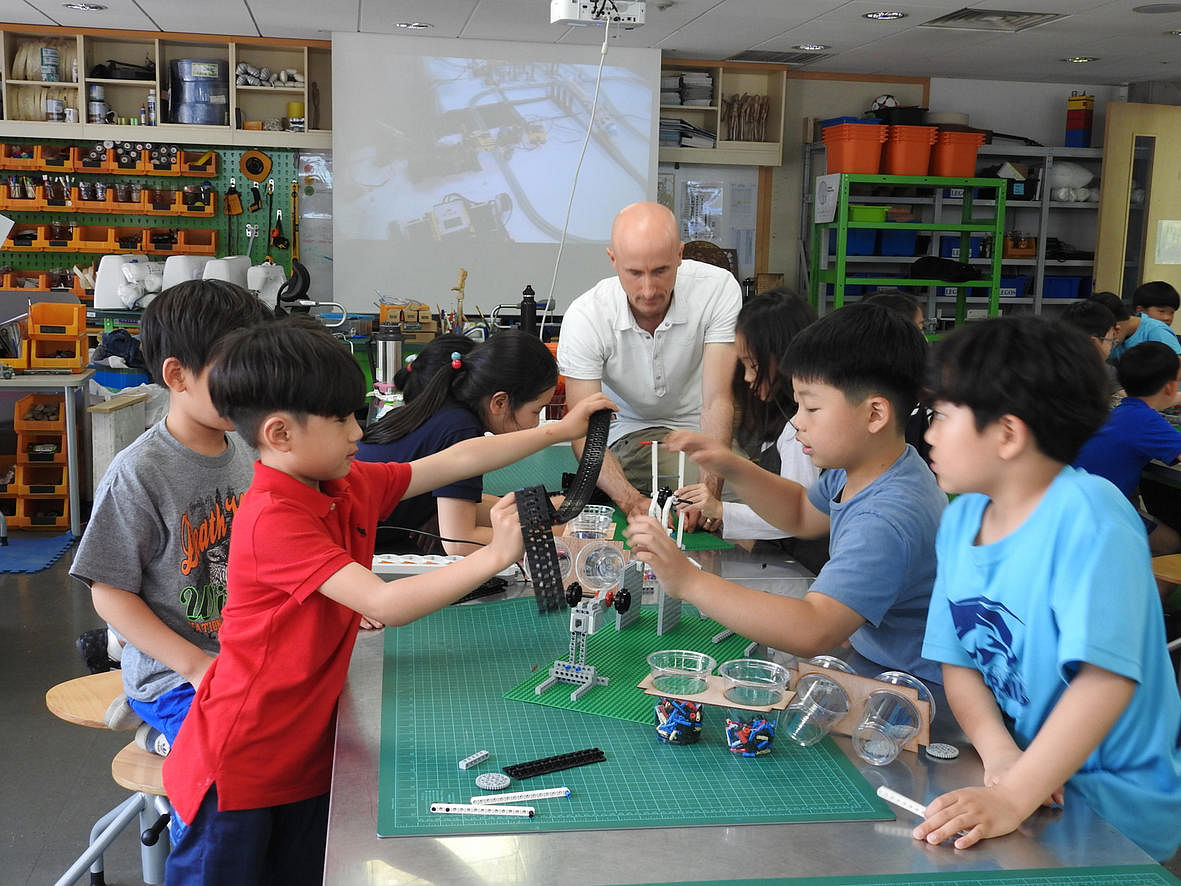Parents are strolling with their children in South Korea’s own Central Park on a Thursday evening, cooing at deer and tinkering on a “magic piano” with a leaf-shaped lid. The relaxed mood is in stark contrast to the shiny glass facades of skyscrapers surrounding the park, and yet, they exist in quiet harmony.
This is Songdo, South Korea’s first smart city, built from scratch on 53.4 sq km of land reclaimed from the Yellow Sea on the country’s western coast. It is also designated as a free economic zone with the aim of attracting foreign investments.
When it first broke ground in 2003, Songdo was envisioned to be a “city of the future” that is green, sustainable and yet integrates the best of available technologies to make modern living a cinch.
Most of that has been realised. Songdo, which is part of airport city Incheon, is so connected that officials are able to track public services and collect big data with the aim of raising the quality of life.
Digital road signs offer traffic and weather updates. Closed-circuit television cameras and sensors keep public spaces safe. Free Wi-Fi is everywhere. A pneumatic waste disposal system dispenses with rubbish trucks.
Homes can be controlled with one button, and a video-conferencing system allows remote learning and medical consultations.
But for a country that is one of the most wired in the world, Songdo’s tech features are not the biggest draw for its 100,000 residents.
“I can hardly feel any smart features,” said administrative manager Sang Hee, 40, who was at the park with her husband and six-year-old daughter.
Instead, she raved about Songdo’s clean air and space – unlike in Seoul where she had lived for 20 years – and high educational standards. “We love living here,” she said, echoing the sentiments shared by many other residents .
Almost 40 per cent of Songdo is green space. The crown jewel is Central Park, a 40ha oasis featuring a vast lake and boat rides.
What may not be obvious is the seamless integration of technology in the park, located in the middle of Songdo International Business District, that is jointly developed by United States developer Gale International and South Korea’s Posco Engineering and Construction.
“Years of planning and thousands of hours’ worth of extensive and intricate engineering and design components went into Central Park’s formation,” Gale’s CEO Stan Gale told The Straits Times via e-mail.
Central Park’s smart features, he said, include an underground water catchment system that captures and stores rainwater and a self-sustaining irrigation system. Poles placed in the park are equipped with CCTV and siren bells to offer emergency assistance to visitors.

Mr Gale added: “The smart features of the city are embedded into the built environment (and) enable a higher quality of life without being gadget and device focused per se.”
Even then, some critics have said this first-generation smart city is not high-tech enough by today’s standards. But a visit to Songdo’s operation centre reveals that they have already applied the latest technologies such as Internet of Things (IoT) and cloud computing, and are exploring the use of drones and artificial intelligence.
The heart of the centre is a room where 50 staff members work in shifts around the clock to monitor over 1,000 CCTV cameras.
An official said they once helped a man who had a heart attack while jogging at dawn when there was no one around. “He pressed the siren bell before he collapsed, and we got the ambulance to him within minutes,” she said.
The use of CCTV raises privacy issues. But officials explained that the footage is deleted after 30 days.
Quality of life does not come cheap. A three-bedroom apartment costs about 500 million won (S$620,000) compared with 400 million won in Seoul. Yet, most available apartments have been sold.
Songdo has also drawn flak for costing a whopping US$35 billion (S$48.5 billion) to build and landing Incheon in debt, and for not attracting enough foreign investments.
To be fair, the city is slated for completion only in 2022, after delays due to economic downturns. But already, it is starting to emerge as a bio-hub, with the US’ GE Healthcare and Germany’s Merck setting up training centres.
Songdo is also gaining a reputation as an education hub. At Chadwick International School, teachers organise virtual field trips and students go to class with iPads or MacBooks. They also build systems using Lego bricks and 3D printing.

“People who came to Songdo are open to the concept of student-centred learning, which can be thought of as the future of classrooms,” said teacher Gary Donahue.
Student Brandon Park, 19, said he overcame dyslexia because Chadwick “allowed me to learn at my own pace”. He added that his family moved to Songdo from Daegu five years ago. “My cousins came to visit, and they were like, whoa, you’re really living in the future – the buildings look like those in the movies.”



